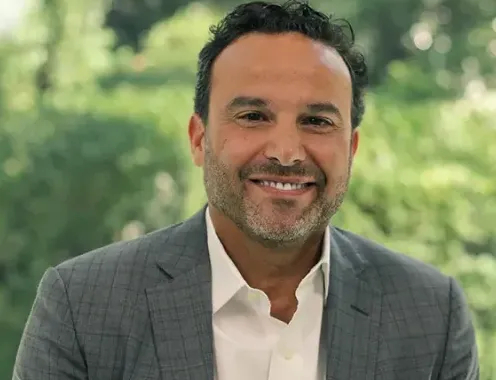Nicola Scampoli - SVP Corporate Finance & Procurement at SWAROVSKI
Finance & Accountancy
05 June, 2019


As someone who has been working in Switzerland for many years, what changes have you seen to the employment market, particularly within finance & procurement?
The various technology platforms have enabled companies to attract talent from a larger global pool and enabled talent to have a faster and broader access to jobs. All this has created a more transparent, competitive and global employment market. Overall, I believe that you get more quantity and choice, but not necessarily more quality. The last mile in the recruitment process, when you test the soft skills, is still very relevant.
I observe an oversupply of qualified talent in Finance and an undersupply in the Procurement market. My observations rely particularly on the turnover of staff and recruitment.
Furthermore, in your opinion, what have been the drivers for these changes?
I believe there are multiple drivers - I see three in particular. One, globalisation. Talent (younger talent in particular) has become more mobile. Two, technology. Employer and talent are using technology to enable the search and the fit. Three, transformation. Most companies are undergoing transformations of some degree.
Digitalisation is an ongoing hot topic in the market place. Given the pace of change, how is your organisation embracing this topic and what challenges do you foresee will need to be overcome?
I think that the main issue with digitalisation and technology is that it is generally more advanced and readily available than organisations and employees can absorb. We try to prioritise business and functional topics based on customer/consumer needs, then specify the technology that meets the needs, then scout the market in the relevant areas and then decide which technology we deploy in which business or functional area. The major challenges to overcome are trade-offs among which technology investments to prioritise and how to manage the abundancy of data.
In recent years you have taken on responsibility for the Procurement function alongside the Finance role – how do you manage the balance between the two operations?
The leadership and management approaches are similar. The main difference is that the different functions are at various maturity stages. In Procurement, we are in the middle of a large transformation requiring more attention. However, striking a balance on where to allocate time and other scarce resources is a typical and constant duty of any manager.
What other challenges await your business and how do you hope to overcome them? Do you foresee greater change within Finance or Procurement in the coming years?
The global markets we operate in offer lots of opportunities, but at the same time competition for the share of wallet has increased. The biggest challenge is the one of transformation across the company, both in magnitude and speed, in order to capture the opportunities. In general, I try to prioritise, to visualise on a roadmap, to execute and then to monitor progress. In our particular case, Procurement faces greater challenges given its undergoing transformation. But there are also a number of Finance topics driven either by market demand (e.g. payment systems), regulations (e.g. customs, insurance) or technology (e.g. data management).
What has excited you about working in the luxury goods market over the course of your career? In particular, what excites you about working for Swarovski?
The global luxury goods market, and the jewellery market in particular, is very attractive with appealing characteristics. It is large, it outgrows global real GDP, it’s profitable, its global products are distributed through multiple channels, products are tangible and transport emotions and business is conducted in a pleasant environment. Also Swarovski is one of the few global players.
I have a broad role in an attractive, globally operating company that keeps me interested and challenged. I have the opportunity to deep dive in certain areas of interest (e.g. M&A and investments) and I can make use of my education, languages, skills and experience in a free-to-act working culture.
How important was it for you to develop relationships outside of your department for career development?
Developing and maintaining relationships is of utmost importance. Within the company we provide services to our colleagues, hence they are (to a large extent) our customers. Outside the company, I maintain relationships with peers, industry experts and former colleagues.
What would you say is the most rewarding part of your role?
When a team achieves set goals, celebrates success and gets rewarded.
What advice would you give to future aspiring leaders and why?
Follow your talents and interests. Gain experience in various fields. Be open to and seize opportunities when they come around. Stay hungry and curious. Do not plan too far out. You can only perform sustainably and be happy in areas where you can deploy personal talents and interests.
Who is the most inspiring person in business for you and why?
There is no single person. Several people have inspired me and there will be more to come.






You can also use your social account to sign in. First you need to:
Accept Terms & Conditions And Privacy Policy